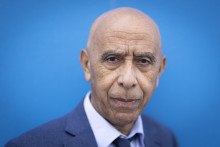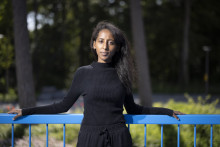All the cases described in the PhD work are of migrants returning to Ethiopia, the researcher’s home country. Beza Nisrane, a PhD candidate in the research group Public Administration, decided to pursue doctoral research after seeing how challenging it was for female migrants to reintegrate after coming back to Ethiopia. The result is her thesis titled ‘Home but not at home’, which highlights the struggles that the women go through.
No legal rights
These struggles are largely caused by what the migrants experienced during their time abroad in various Arabian Gulf countries, such as Yemen, Saudi Arabia, Kuwait, and Jordan. ‘The migrants usually leave Ethiopia to improve their economic situation,’ says Nisrane. ‘They move to these countries, where they enter so called “kafala” system. It is a sponsorship system which requires the migrant to have an in-country sponsor, usually their employer, who is responsible for their visa and legal status.’
‘This means the sponsor has total power over them,’ continues Nisrane. ‘They often get abused, they don’t get paid, they have no legal rights. Rape is common in these situations. They get exploited, but if they escape the employer, they become illegal migrants – which makes it very difficult for them to leave the country. Once they do, they face other difficulties.’
Big social stigma
‘The return home’ is what Nisrane’s research focused on. ‘The women have troubles with reintegration. They are dealing with severe trauma, they have no savings because most them sent all the money to their family, they face social challenges. Because they have been sexually abused, there is a big social stigma surrounding them. On top of that, their family is often unhappy because they lost their source of income. All of this breaks their relationships.’
Proper help
The PhD researcher sees several opportunities on how to ease these problems. ‘First we should take preventive measures and improve the working conditions of our citizens abroad. According to all the migrants I’ve interviewed, what they need the most is proper legal protection,’ she says. ‘Secondly, the reintegration efforts of the government have mostly focused on vocational training. However, the women first need psychological, social and medical help.’
Nisrane is aiming to apply her research findings in practice. She is now working with attorneys in Ethiopia and plans to engage government officials. ‘Most people who decide to go abroad don’t know what it will entail or they simply think it will not happen to them. But in the end, there are too many disturbing stories out there.’







